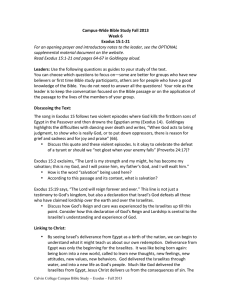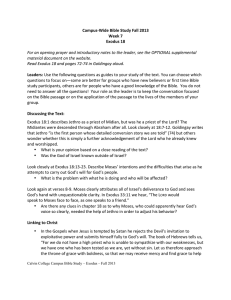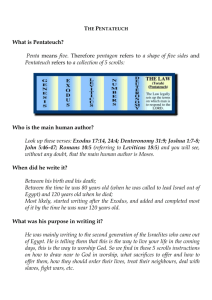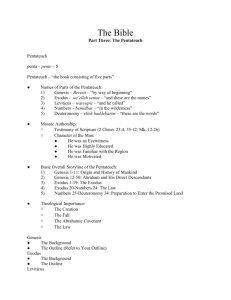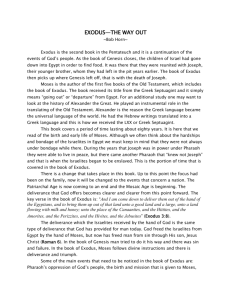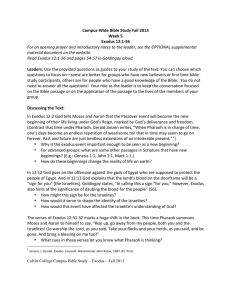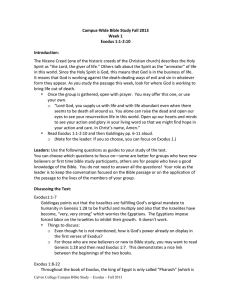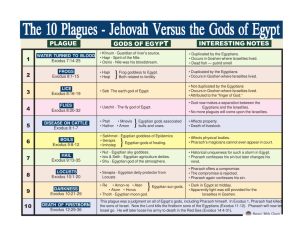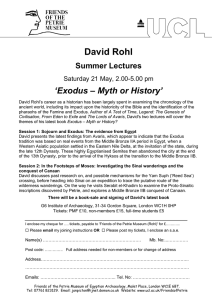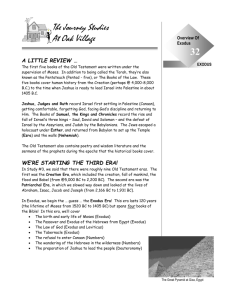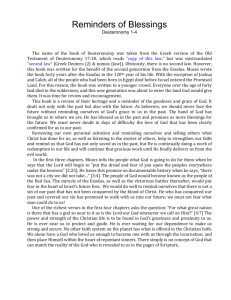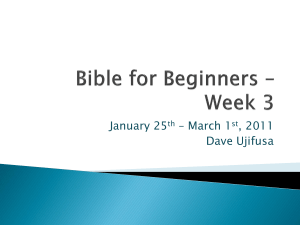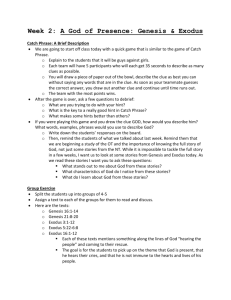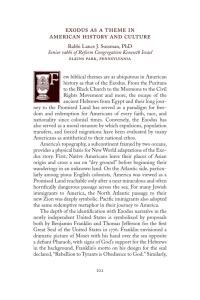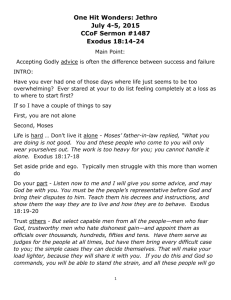William Dever Chapter 1 Notes
advertisement
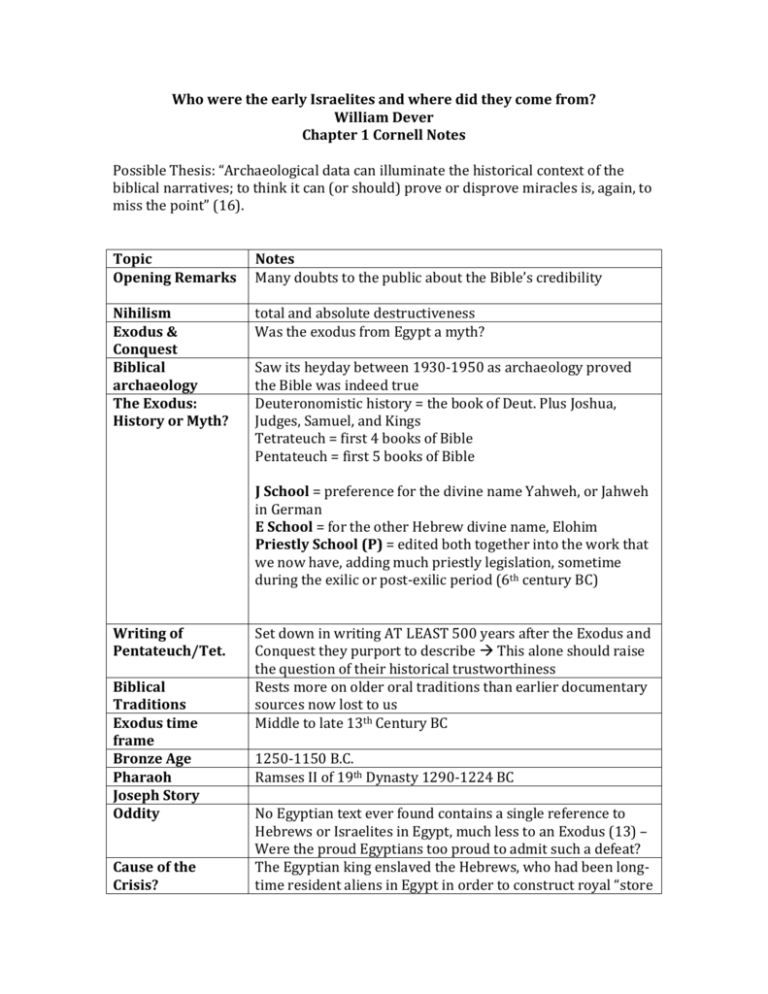
Who were the early Israelites and where did they come from? William Dever Chapter 1 Cornell Notes Possible Thesis: “Archaeological data can illuminate the historical context of the biblical narratives; to think it can (or should) prove or disprove miracles is, again, to miss the point” (16). Topic Opening Remarks Notes Many doubts to the public about the Bible’s credibility Nihilism Exodus & Conquest Biblical archaeology The Exodus: History or Myth? total and absolute destructiveness Was the exodus from Egypt a myth? Saw its heyday between 1930-1950 as archaeology proved the Bible was indeed true Deuteronomistic history = the book of Deut. Plus Joshua, Judges, Samuel, and Kings Tetrateuch = first 4 books of Bible Pentateuch = first 5 books of Bible J School = preference for the divine name Yahweh, or Jahweh in German E School = for the other Hebrew divine name, Elohim Priestly School (P) = edited both together into the work that we now have, adding much priestly legislation, sometime during the exilic or post-exilic period (6th century BC) Writing of Pentateuch/Tet. Biblical Traditions Exodus time frame Bronze Age Pharaoh Joseph Story Oddity Cause of the Crisis? Set down in writing AT LEAST 500 years after the Exodus and Conquest they purport to describe This alone should raise the question of their historical trustworthiness Rests more on older oral traditions than earlier documentary sources now lost to us Middle to late 13th Century BC 1250-1150 B.C. Ramses II of 19th Dynasty 1290-1224 BC No Egyptian text ever found contains a single reference to Hebrews or Israelites in Egypt, much less to an Exodus (13) – Were the proud Egyptians too proud to admit such a defeat? The Egyptian king enslaved the Hebrews, who had been longtime resident aliens in Egypt in order to construct royal “store The 10 Plagues Crossing of the Red (Reed) Sea cities, Pithom and Ramses” (Exodus 1:11) The events are all presented as miracles: dramatic and conclusive proof of Yahweh’s intervention in nature and history on behalf of his people, and also of course an exhibition of the impotence of Pharaoh and the gods of Egypt (15) All the plagues are susceptible to modern/natural explanations (15) Baghdad boil / Jericho rose” (Ibid) 1. The last plague, death of all newborn males, not easily explained Exodus 12: 29-32 There is simply no naturalistic way of accounting for this particular plague (moral way of accounting for the actions of such a vengeful deity?) Bottom line is these events cannot be explained To say they’re not miracles would be to negate Yahweh’s power over Nature (massive heresy) Is it possible Reed Sea was a shallow, marshy area somewhere where the northern section of the Suez Canal is today (16) Unlikely to refer to Red Sea b/c it’s salt water and devoid of reeds Topographical analysis does not reveal any place where water could easily have been forded, although various routes have been proposed Wandering in the Wilderness Composite work of the so-called J and E schools of authors in the 8th-7th centuries BC, estensively reworked by the P editors in the 6th/5th centuries BC (addition of Leviticus for example) Problems: Could the Sinai Desert have supported more than a few thousand nomads? Bible suggests 2.3-3 million (18-19) Kadesh-barnea: site where Israelites are said to have sojourned for some 38 years (Num. 13, 14,20)
